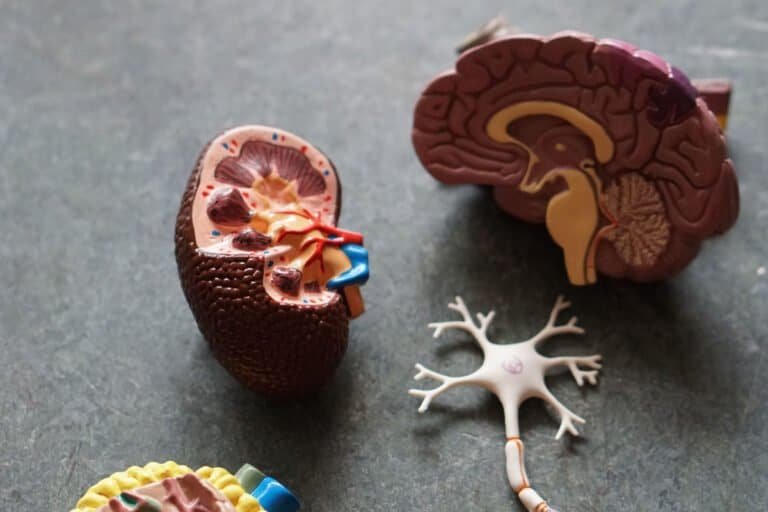Soft Skills vs Life Skills
I. Introduction
In today’s fast-paced and ever-changing world, personal and professional success relies not only on technical knowledge and hard skills but also on the ability to navigate complex social and personal situations. Two key components of this equation are soft skills and life skills, both of which play a vital role in shaping an individual’s overall growth and development. In this article, we will explore the definitions, differences, and the importance of understanding the distinction between soft skills and life skills.
A. Definition of Soft Skills
Soft skills, also known as interpersonal or people skills, are a set of non-technical abilities that enable individuals to interact effectively and harmoniously with others. These skills encompass a wide range of behaviors and personal attributes, such as communication, teamwork, emotional intelligence, problem-solving, and adaptability. Soft skills are crucial in professional settings, where collaboration, negotiation, and relationship-building are key to achieving success.
B. Definition of Life Skills
Life skills, on the other hand, refer to a set of practical abilities and knowledge that individuals acquire and use to manage their everyday lives. These skills help people make informed decisions, maintain a healthy lifestyle, and navigate various challenges and opportunities in both personal and professional contexts. Examples of life skills include financial literacy, time management, resilience, decision-making, and healthy living habits.
C. Importance of Distinguishing Between Soft Skills and Life Skills
While both soft skills and life skills are essential for personal and professional development, it is important to distinguish between the two in order to understand their unique contributions and applications. Soft skills primarily focus on interpersonal relationships and the ability to function effectively in a professional environment, whereas life skills encompass broader aspects of personal well-being and day-to-day living. Recognizing the distinction between these two skill sets enables individuals to identify areas for growth and development, ultimately leading to a more balanced and fulfilling life.
II. Soft Skills
A. Overview and Examples
- Communication: Effective communication is crucial in any professional setting, as it allows individuals to express their ideas, opinions, and concerns clearly and concisely. This skill encompasses both verbal and non-verbal communication, including active listening, public speaking, writing, and body language.
- Teamwork: Teamwork involves the ability to work cooperatively with others, contribute to group efforts, and manage interpersonal conflicts. It requires individuals to be open to diverse perspectives, share responsibilities, and create a supportive and inclusive environment.
- Emotional Intelligence: Emotional intelligence (EI) refers to the capacity to recognize, understand, and manage one’s own emotions and the emotions of others. People with high EI can empathize with others, demonstrate self-awareness, and effectively navigate emotionally charged situations.
- Problem-solving: Problem-solving is the ability to identify issues, analyze information, and develop effective solutions. This skill involves critical thinking, creativity, and resourcefulness, which are essential in overcoming challenges and making sound decisions in the workplace.
- Adaptability: Adaptability is the ability to respond effectively to changes and uncertainties. Adaptable individuals can adjust their approach, learn new skills, and embrace new ideas, which is essential for thriving in today’s rapidly changing work environment.
B. Impact on Professional Life
- Workplace Success: Soft skills are essential for workplace success, as they enable individuals to collaborate effectively, solve problems, and adapt to changing circumstances. A strong foundation in soft skills can lead to increased productivity, better relationships with colleagues, and improved job satisfaction.
- Career Advancement: Employers often seek candidates with well-developed soft skills, as these individuals are more likely to excel in leadership positions and contribute to a positive work environment. Demonstrating strong soft skills can lead to promotions, job offers, and other career opportunities.
- Networking: Soft skills play a crucial role in networking, as they enable individuals to create and maintain professional relationships. Effective communication, emotional intelligence, and adaptability can help foster connections with peers, mentors, and potential employers, which can open up new opportunities and expand one’s professional network.
C. Ways to Develop Soft Skills
- Workshops and Seminars: Participating in workshops and seminars focused on soft skill development can provide valuable insights and practical exercises to improve these skills. Many organizations and training centers offer such programs, covering topics like communication, leadership, and emotional intelligence.
- Online Courses: Numerous online platforms offer courses and resources dedicated to soft skill development. These courses often provide a flexible and self-paced learning environment, allowing individuals to enhance their skills at their own convenience.
- Mentorship Programs: Engaging in mentorship relationships can be an effective way to develop soft skills. Mentors can provide guidance, feedback, and support, helping individuals to navigate professional challenges and develop their interpersonal abilities.
- Self-assessment and Self-improvement: Regular self-assessment can help individuals identify areas for growth and improvement in their soft skills. Reflecting on personal experiences, seeking feedback from others, and setting specific goals can promote continuous self-improvement and the development of strong soft skills.
III. Life Skills
A. Overview and Examples
- Financial Literacy: Financial literacy is the ability to understand and manage personal finances, including budgeting, saving, investing, and debt management. Developing financial literacy enables individuals to make informed decisions about their financial future and achieve financial stability.
- Time Management: Time management involves planning and organizing daily tasks and activities to use time effectively and efficiently. Mastering time management can help individuals achieve a healthy work-life balance, reduce stress, and accomplish personal and professional goals.
- Resilience: Resilience is the ability to cope with and adapt to setbacks, challenges, and changes. Developing resilience enables individuals to maintain emotional and mental well-being during difficult times and bounce back from adversity.
- Decision-making: Decision-making is the process of evaluating options and selecting the best course of action. Effective decision-making involves critical thinking, problem-solving, and the ability to weigh the pros and cons of various choices.
- Healthy Living: Healthy living encompasses habits and behaviors that promote physical, mental, and emotional well-being, such as exercise, nutrition, stress management, and self-care.
B. Impact on Personal Life
- Mental Health and Well-being: Developing life skills can have a significant impact on mental health and well-being, as individuals are better equipped to cope with stress, manage emotions, and maintain healthy relationships.
- Building and Maintaining Relationships: Life skills, such as effective communication, empathy, and conflict resolution, can help individuals build and maintain strong personal and professional relationships, fostering a sense of belonging and support.
- Goal Setting and Personal Fulfillment: Life skills enable individuals to set realistic goals, manage their time and resources effectively, and make informed decisions, leading to a greater sense of personal fulfillment and achievement.
C. Ways to Develop Life Skills
- Educational Programs: Many schools, colleges, and universities offer courses and programs focused on life skill development, covering topics such as financial literacy, time management, and healthy living.
- Community Resources: Local community centers, libraries, and non-profit organizations often provide resources and workshops focused on life skill development, offering individuals access to practical tools and strategies to enhance their daily lives.
- Books and Online Resources: Numerous books, articles, and online resources are available on various life skill topics, providing individuals with the opportunity to learn and grow at their own pace.
- Life Coaching: Life coaches are professionals who specialize in helping individuals develop and refine their life skills. Working with a life coach can provide personalized guidance, support, and accountability, promoting lasting personal growth and self-improvement.
IV. The Interplay of Soft Skills and Life Skills
A. How Soft Skills Contribute to Life Skills
- Emotional Intelligence in Personal Relationships: Emotional intelligence, a key soft skill, plays a significant role in developing and maintaining healthy personal relationships. By understanding and managing one’s emotions and empathizing with others, individuals can communicate more effectively, resolve conflicts, and foster deeper connections with friends and family.
- Problem-solving in Everyday Situations: Soft skills like problem-solving can be applied to various aspects of daily life. By using critical thinking, creativity, and resourcefulness, individuals can tackle everyday challenges and make well-informed decisions, contributing to a more balanced and fulfilling personal life.
- Adaptability in the Face of Life Changes: The ability to adapt to change, a valuable soft skill, is essential for coping with life’s inevitable ups and downs. By embracing new experiences, learning new skills, and adjusting to different circumstances, individuals can navigate personal transitions more smoothly and maintain a sense of stability and well-being.
B. How Life Skills Contribute to Soft Skills
- Time Management for Workplace Efficiency: Effective time management, a crucial life skill, can significantly impact workplace efficiency. By organizing tasks, setting priorities, and managing time wisely, individuals can improve their productivity, meet deadlines, and create a better work-life balance, contributing to overall soft skill development.
- Decision-making in Professional Contexts: Life skills like decision-making can be applied to professional situations, enabling individuals to make informed choices that benefit their career and work environment. By using critical thinking and problem-solving abilities, employees can make strategic decisions that lead to positive outcomes in the workplace.
- Resilience in Overcoming Career Challenges: Resilience, a key life skill, plays an essential role in overcoming career challenges and setbacks. By cultivating resilience, individuals can maintain a positive attitude, learn from their mistakes, and persevere through difficult situations, ultimately enhancing their soft skills and contributing to professional growth.
V. Conclusion
A. Importance of Developing Both Soft Skills and Life Skills
In today’s increasingly competitive and complex world, it is vital for individuals to develop both soft skills and life skills. These two skill sets are essential for personal and professional success, as they equip individuals with the tools necessary to navigate various social and personal situations, make informed decisions, and adapt to change.
B. The Complementary Nature of Soft Skills and Life Skills
Soft skills and life skills are complementary, with each set of skills reinforcing and enhancing the other. Soft skills, such as communication, emotional intelligence, and problem-solving, contribute to the development of strong personal relationships and effective decision-making in everyday life. Conversely, life skills like time management, resilience, and decision-making can be applied to professional contexts, leading to improved workplace efficiency and career advancement.
C. Encouraging Personal and Professional Growth through Skill Development
By recognizing the importance of both soft skills and life skills and investing in their development, individuals can foster personal and professional growth. Actively engaging in skill development through educational programs, workshops, mentorship, and self-assessment can lead to increased self-awareness, improved relationships, and a greater sense of fulfillment and achievement in various aspects of life. In turn, this holistic approach to personal and professional growth can contribute to a more balanced, successful, and rewarding life.







